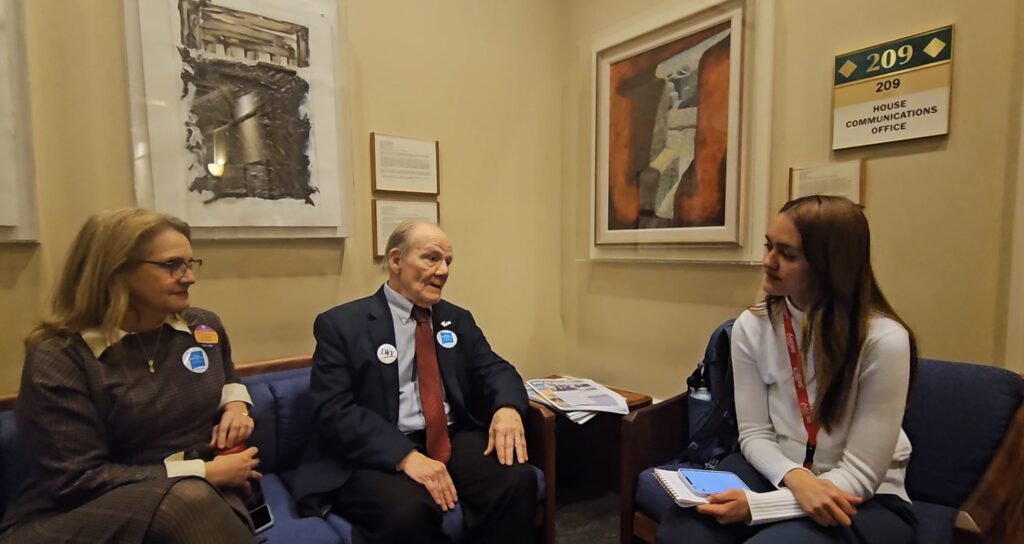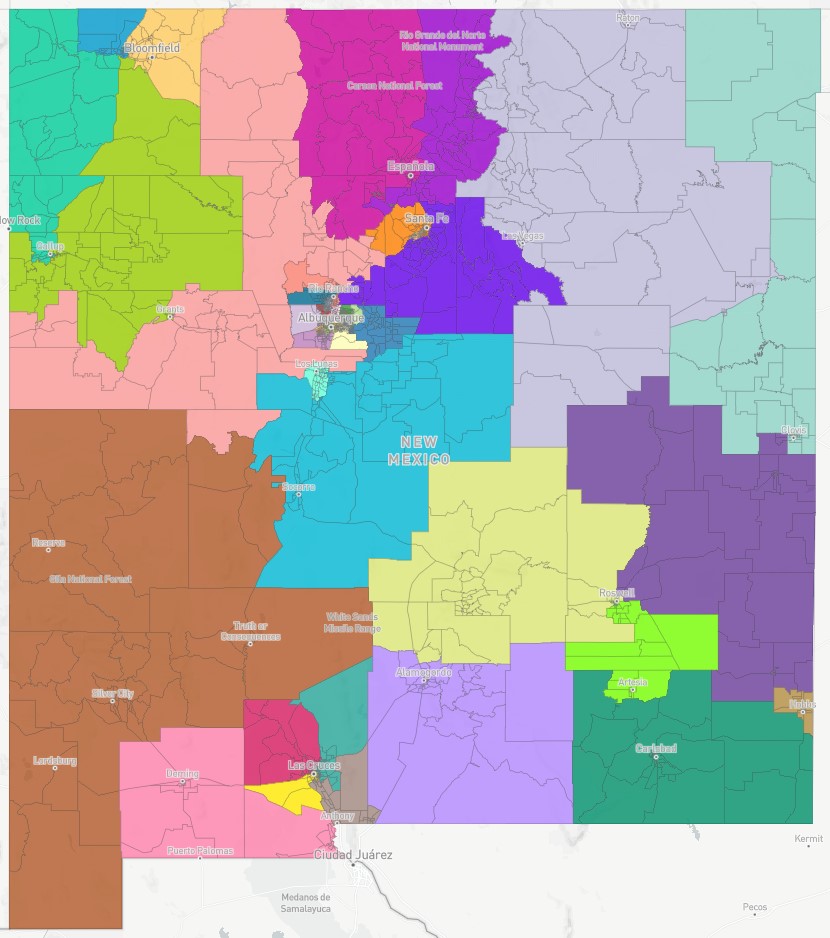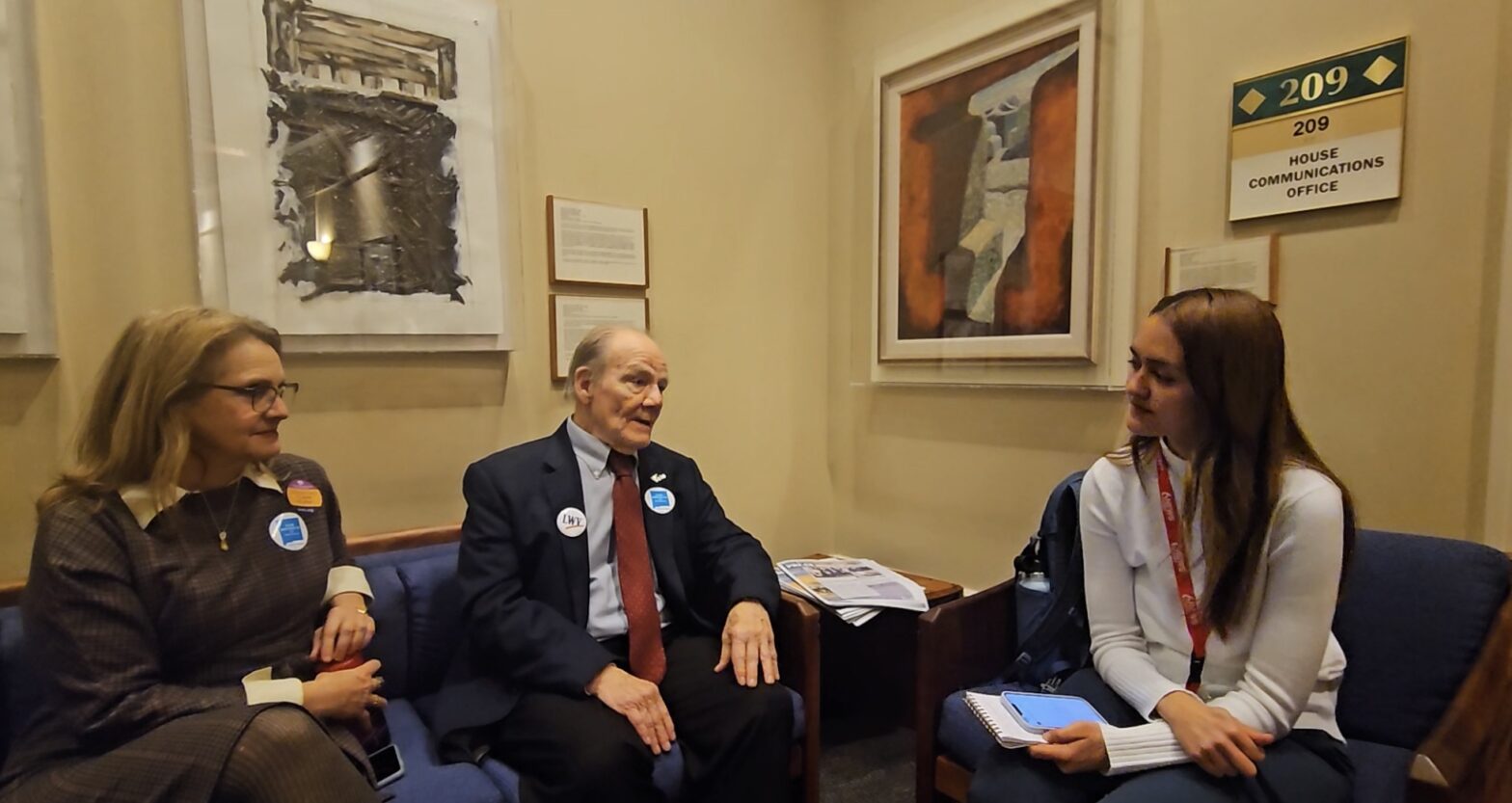By Bianca Hoops
Efforts to enact a fully independent redistricting commission failed during the 2024 legislative session, but advocates still have time to change the system before the lines are redrawn in 2031.
New Mexico created an advisory redistricting commission before the 2021 redistricting process but critics said state lawmakers still had too much power to inject politics into the new district lines.
Republicans sued after Democrats tweaked the Congressional district maps produced by the Citizens Redistricting Committee, but in late 2023 the state Supreme Court upheld the plan, saying although Democrats had redrawn the lines in their favor, they had not engaged in “egregious” gerrymandering.
Redistricting is required to equalize population with in voting districts after the census updates the number of people who live in different areas. Gerrymandering is a term used to describe drawing districts that are not just equal in population but are wildly skewed to advantage one party or candidate.
Kathleen Burke and Dick Mason with Fair Districts of New Mexico had hoped to persuade lawmakers to pass a constitutional amendment creating a truly independent—not advisory—commission.
“All we are saying to Legislators is put it on the ballot and let the voter decide,” said Mason, a longtime volunteer with the New Mexico League of Women Voters.

Reporter Bianca Hoops talks to Kathleen Burke and Dick Mason. Photo Credit: Elizabeth Sector.
Burke said that the current system, in which the commission presents maps to state lawmakers for approval, allows both Republican and Democratic legislators to shape districts that can almost guarantee their reelection.
“The district has been tailored and drawn for them so they don’t face challenges,” Burke said.

The Senate districting map layout. Image from New Mexico Citizen Redistricting Committee.
Sen. Mark Moores, R-Albuquerque, supports the idea of independent redistricting. “I think it’s really important for democracy because what happens in this building is that people are drawing their own districts ,” said Moores, who has announced he is retiring from the state Senate.
Moores said he expected opposition to the proposal. “You get a lot of lip service from these people who claim they want good governance—unless they’re the ones in power,” he said.
This year Fair Districts supported an updated proposal HJR 10 and SJR 7, which would have solicited commissioner applications and used elements of random selection to remove politics from the process.
The new resolution also did not require a former judge or supreme court justice to be the chair of commission.
Fair Districts said they will bring their reform efforts back to next year’s longer 60-day session. If it passes the state House and Senate then New Mexico voters would be asked to approve it during the next general election.
Follow @bianca_hoops https://twitter.com/bianca_hoops on X.
